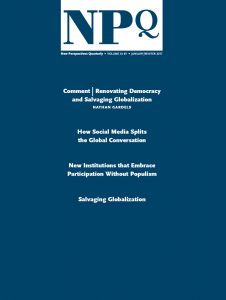Why are we obsessed with what teens are doing on social media?
‘They’, we are told, are prime movers we can observe to spot future trends; like rejecting Facebook. ‘They’ have too much agency because they are doing something problematic or exotic: different to ‘us’. For example, sexting or hacking. Or ‘they’ have too little agency because they are addicted, being brainwashed or radicalised by the Internet. ‘They’ are teenagers. We are not similarly fixated by other social groups in this way. What lies behind our obsession with teenagers online?








